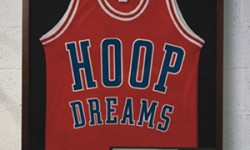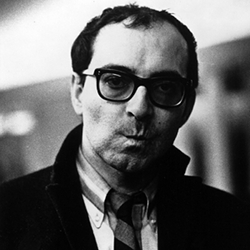
Retrospective on HBO’s Girls
Girls Premieres Tonight at 10pm on HBO. It will also be available on YouTube on Monday.
Very often, the discussion about Girls gets swallowed up in meaningless, trumped up controversies that are more enervating than enlightening, and that detract from a show that is, on its merits, one of the most interesting and innovative things on television right now. The show isn’t always great, but its failures are often failures of ambition; like its characters, Girls makes mistakes because it is trying to figure out who it is, how to talk about what matters to it, and what kinds of stories it wants to tell.
During its tumultuous second season, the show told a long, depressing, meandering story about Hannah’s slow alienation from her friends and loved ones as the core group that makes up the show’s cast grew further and further apart. This story mostly worked until it took an inexplicable turn into mental illness (though the ground was laid for Hannah’s OCD in season one, it was done in a throw-away line and never referenced again; your mileage may vary on that storyline, but for me it lacked the necessary groundwork to feel like anything other than a problematic late-in-the-game “reveal” from a show that doesn’t need those and clearly doesn’t manage them well), but it also indicated the show’s growing pains. This was a thornier, more emotionally complex story than the show had tried to tell in season one, and while it didn’t always work for me, I respected the hell out of what it was trying to do.
While Girls is fitfully improving from a master-plotting perspective, where it truly excels is as a series of inter-connected short stories about a group of friends going through a quarter-life crisis and raging against adulthood with every fiber of their being. In episodes like last season’s masterful “It’s A Shame About Ray” and “One Man’s Trash,” or the show’s two ventures outside New York, “The Return” and “Video Games” it becomes something more like another brilliantly experimental New York based comedy: Louie. These are episodes where pretty much anything can happen, that succeed because of their confidence of presentation and the show’s canny ability to move between harrowing, ethically suspect drama (“On All Fours”) to wacky comedy (“Welcome to Bushwick a.k.a. The Crackcident”) to something more delicately wistful like the brief idyll that is tracked in “One Man’s Trash.” The version of Girls I love the most is the one that can be anything from week to week, that tracks its characters as they try on different versions of adulthood by trying those versions on itself.
Yes, this is a show about self-absorption, self-indulgence, and a lack of self-awareness. But that’s because it’s a show about being in your twenties and understanding there’s this club called adulthood that you’ve ostensibly joined, but that you have no idea what the rules are, who the other members are, or how it’s supposed to be different from everything that came before. That’s why “It’s A Shame About Ray” was my favorite episode of season two. It was the clearest example of these characters playing dress up, making Pad Thai from scratch, throwing dinner parties, and trying to be serious about their serious adult relationships. They were all wearing masks of maturity, and over the course of that gathering, the masks began to crumble until all that was left was a mass of blubbering insecurity hoping for something to cling to in a sea of uncertainty.
Girls isn’t about good people or bad people, sinners or saints. It’s a show about people trying to learn what being those types of people would look like, trying to figure out which choices will get them where they want to go and realizing along the way that they often aren’t even sure they’ll be happy when they get there. Lena Dunham is crafting an excellent, intricate, experimental series of stories about what it means to be in your twenties and putting up walls of bravado and hiding from truths that lie at your core when you just aren’t ready to face them. Her characters care so much about themselves because they are in the process of discovering who they really are, and nothing is more fascinating than your own navel when you feel like you’re really seeing it for the first time. Girls isn’t perfect. But then neither is anything that comes out of our twenties. We don’t know what the other side will look like for these characters. Neither do they. All they hope for is that they find a happy ending and that they’re happy once they get there. Maybe they’ll even find themselves along the way, and in the process, figure out that they don’t need to be the center of their own universes to succeed, to connect, to love, to live.
-
luke_a

























